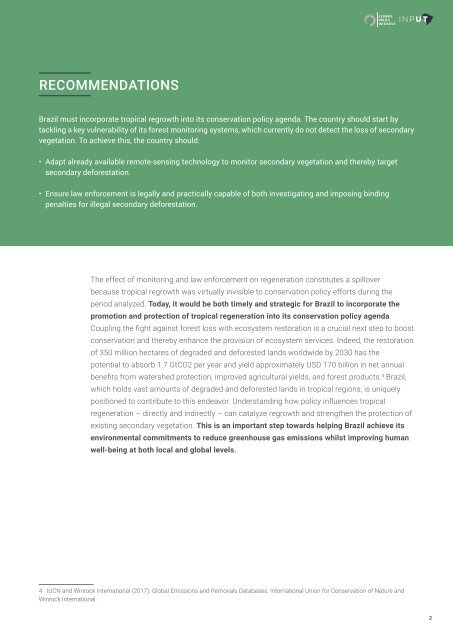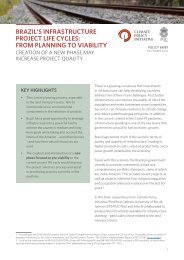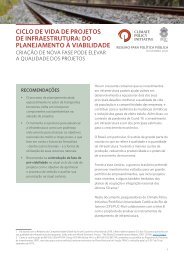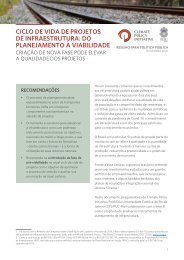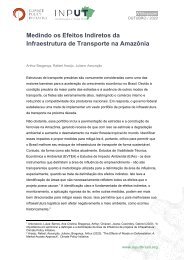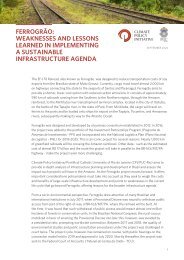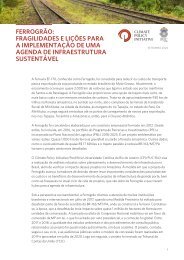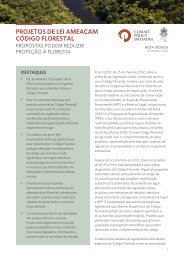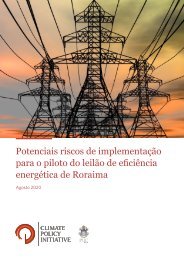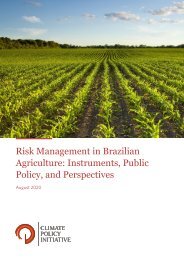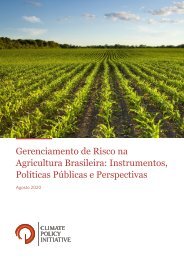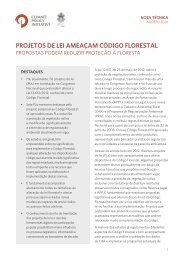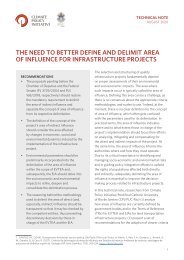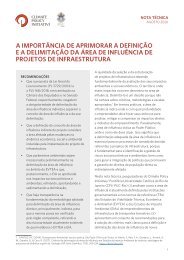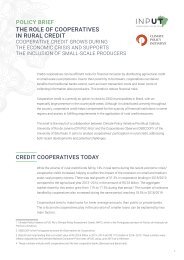Targeting Deforestation, Boosting Regeneration
You also want an ePaper? Increase the reach of your titles
YUMPU automatically turns print PDFs into web optimized ePapers that Google loves.
RECOMMENDATIONS<br />
Brazil must incorporate tropical regrowth into its conservation policy agenda. The country should start by<br />
tackling a key vulnerability of its forest monitoring systems, which currently do not detect the loss of secondary<br />
vegetation. To achieve this, the country should:<br />
• Adapt already available remote-sensing technology to monitor secondary vegetation and thereby target<br />
secondary deforestation.<br />
• Ensure law enforcement is legally and practically capable of both investigating and imposing binding<br />
penalties for illegal secondary deforestation.<br />
The effect of monitoring and law enforcement on regeneration constitutes a spillover<br />
because tropical regrowth was virtually invisible to conservation policy efforts during the<br />
period analyzed. Today, it would be both timely and strategic for Brazil to incorporate the<br />
promotion and protection of tropical regeneration into its conservation policy agenda.<br />
Coupling the fight against forest loss with ecosystem restoration is a crucial next step to boost<br />
conservation and thereby enhance the provision of ecosystem services. Indeed, the restoration<br />
of 350 million hectares of degraded and deforested lands worldwide by 2030 has the<br />
potential to absorb 1.7 GtCO2 per year and yield approximately USD 170 billion in net annual<br />
benefits from watershed protection, improved agricultural yields, and forest products. 4 Brazil,<br />
which holds vast amounts of degraded and deforested lands in tropical regions, is uniquely<br />
positioned to contribute to this endeavor. Understanding how policy influences tropical<br />
regeneration – directly and indirectly – can catalyze regrowth and strengthen the protection of<br />
existing secondary vegetation. This is an important step towards helping Brazil achieve its<br />
environmental commitments to reduce greenhouse gas emissions whilst improving human<br />
well-being at both local and global levels.<br />
4 IUCN and Winrock International (2017). Global Emissions and Removals Databases. International Union for Conservation of Nature and<br />
Winrock International.<br />
2


